Sailing into Chaos: Sick Crew, Kind Locals, and Sharky Suppers in the Solomon Islands
The crossing to the Solomon Islands, Ndendo, took seven days, and by the time we arrived, my untreated bladder infection had blossomed into a full-blown kidney infection—because why not make things dramatic? We immediately wandered to the Hospital in Lata, hoping they could scrounge up some antibiotics. The queue was long, and we braced ourselves for a tedious wait. But barely two minutes in, the nurse called us through. Embarrassed, I shuffled past all the clearly sicker people like some VIP patient.
Their pharmacy was nearly bare, and I wasn’t holding my breath, but the nurse managed to cobble together a combination of antibiotics. Our donation, however, had to be in foreign currency—the hospital had no bank account, and there was no currency exchange in town.
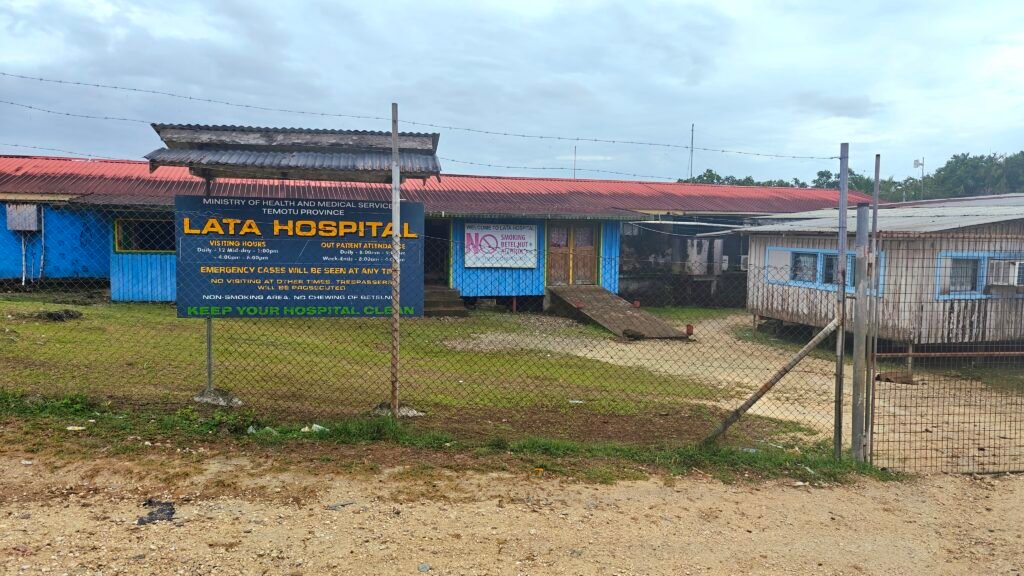
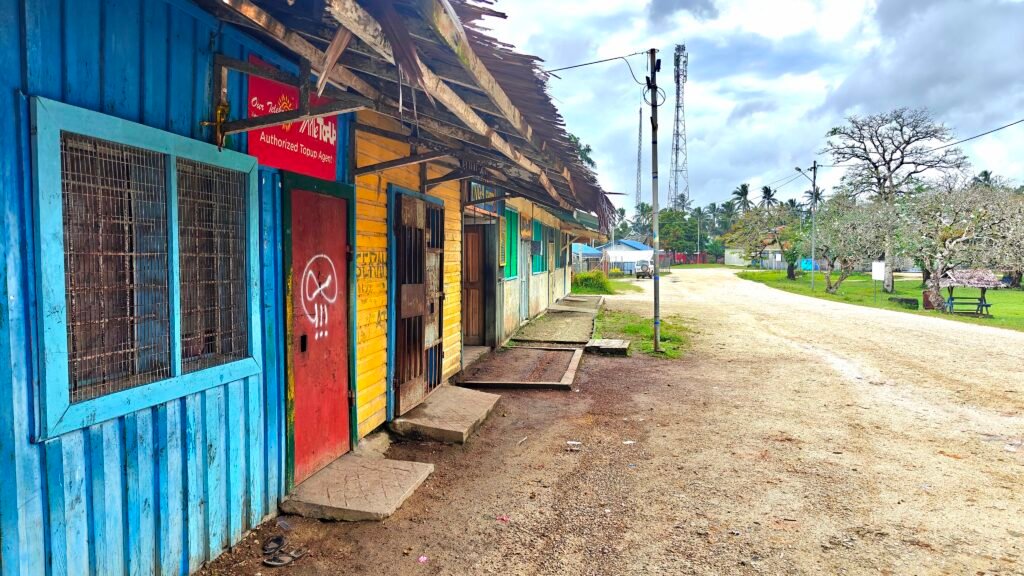
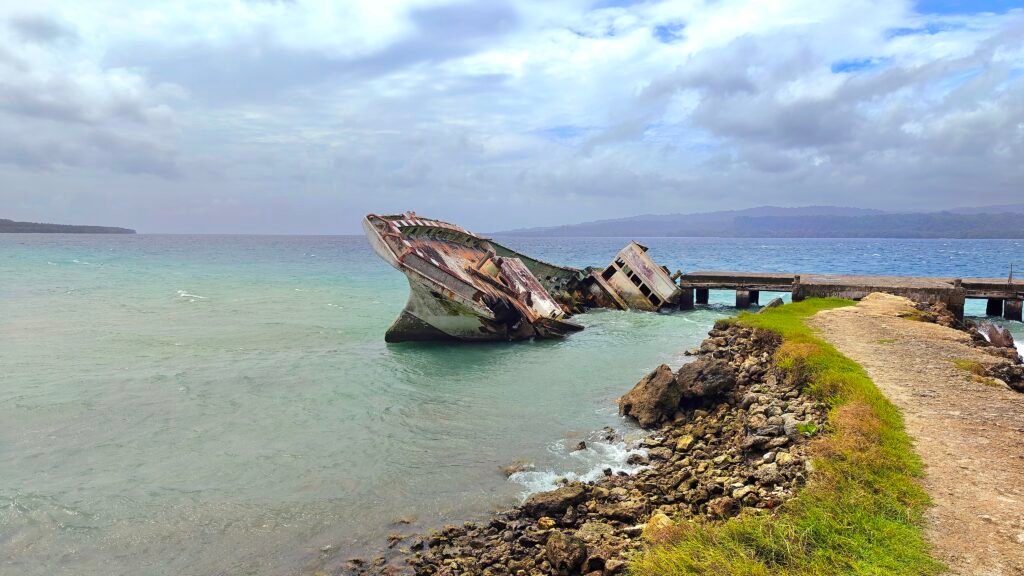
Our next challenge? SIM cards. Our New Zealand SIMs were about as useful as a chocolate teapot, but without Solomon Dollars, buying local ones was tricky. While we sat in the park pondering our next move, we met John, a businessman heading to Honiara. He kindly exchanged some money for us on the spot—absolute legend. Pro tip: if you’re sailing into Lata, come prepared with Solomon Dollars or just ask around. The locals are incredibly friendly and will go out of their way to help.
We anchored for a couple of days in a little bay called Shaw’s Point, a popular spot for yachts. Right away, Hilda—a local hero—welcomed us with fresh fruit and veggies and invited us to a dinner party she was hosting that evening for the other yachties. Hilda is the go-to person for yachties, and she’s pure gold. When she heard I was unwell, she dropped off herbs and more food to help me recover. I even asked about local herbal medicine, but she wisely suggested sticking with my antibiotics—she didn’t want me keeling over from unfamiliar remedies.
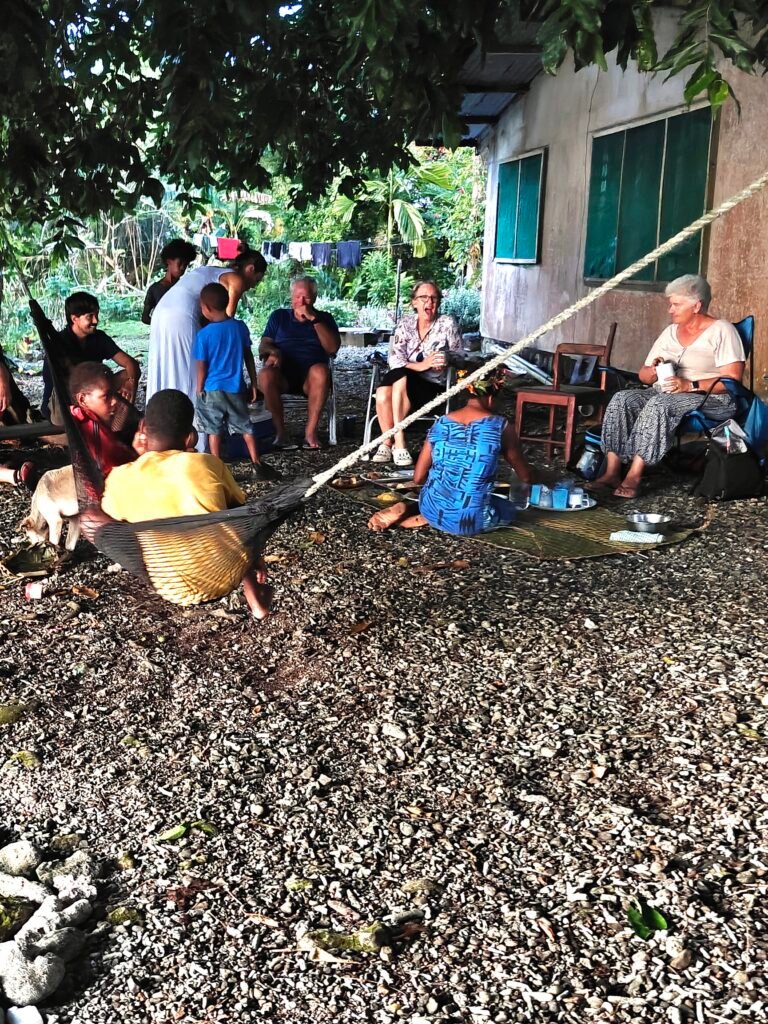
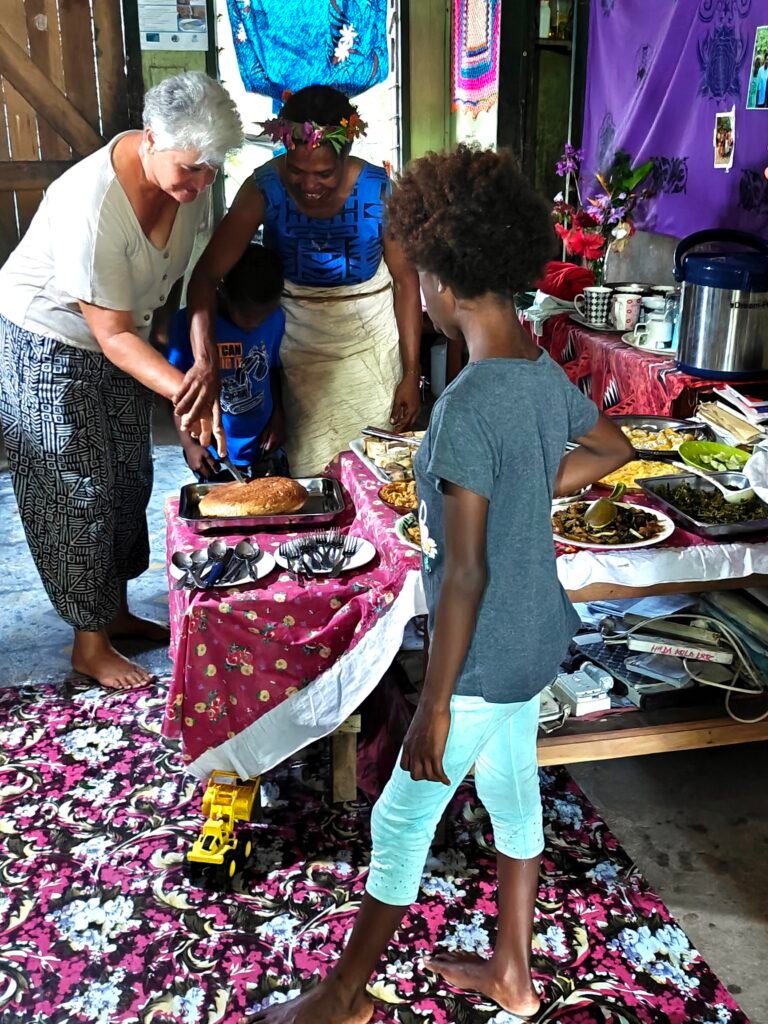
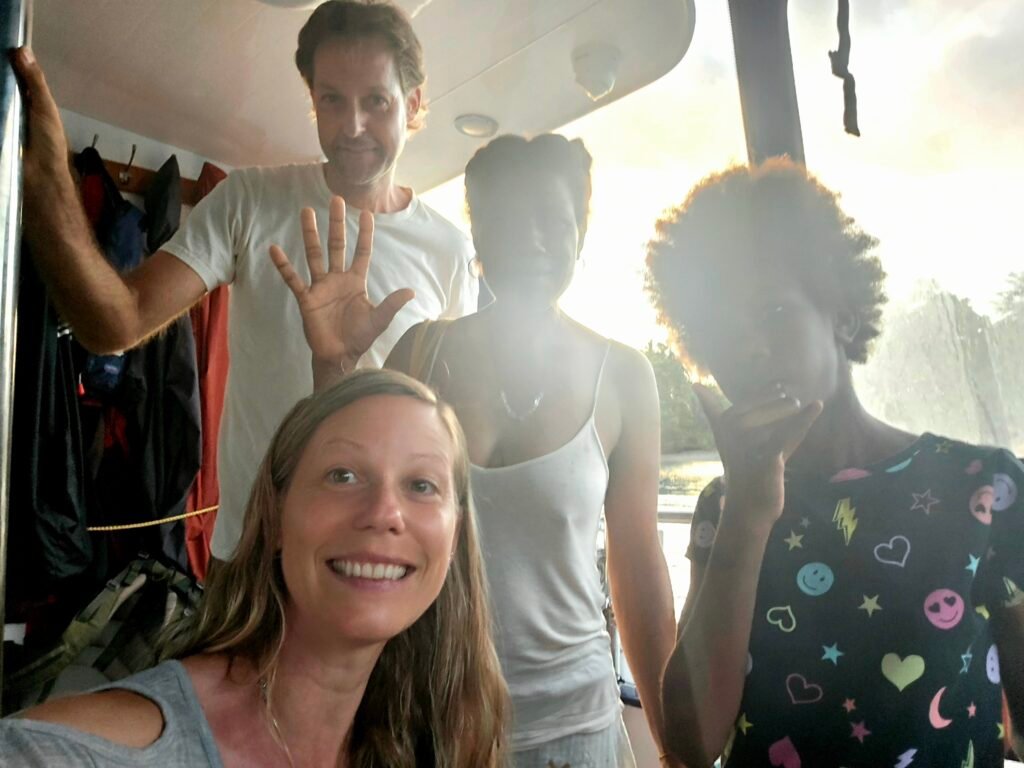
After a few days, we left Lata and set course for Vanikoro via Utupua, a 24-hour sail away. Word spreads fast here—bush drums, they call it—and before we knew it, our boat was loaded with bags of goods for relatives on the island. We even ferried an entire family relocating to Vanikoro: Leonard, his wife Rachel, and their two sons, Kalen and Lawrence. Upon arriving at Utupua, most of the cargo was unloaded, and we were greeted with fresh fruit, vegetables, and even a traditional dance performed on deck.
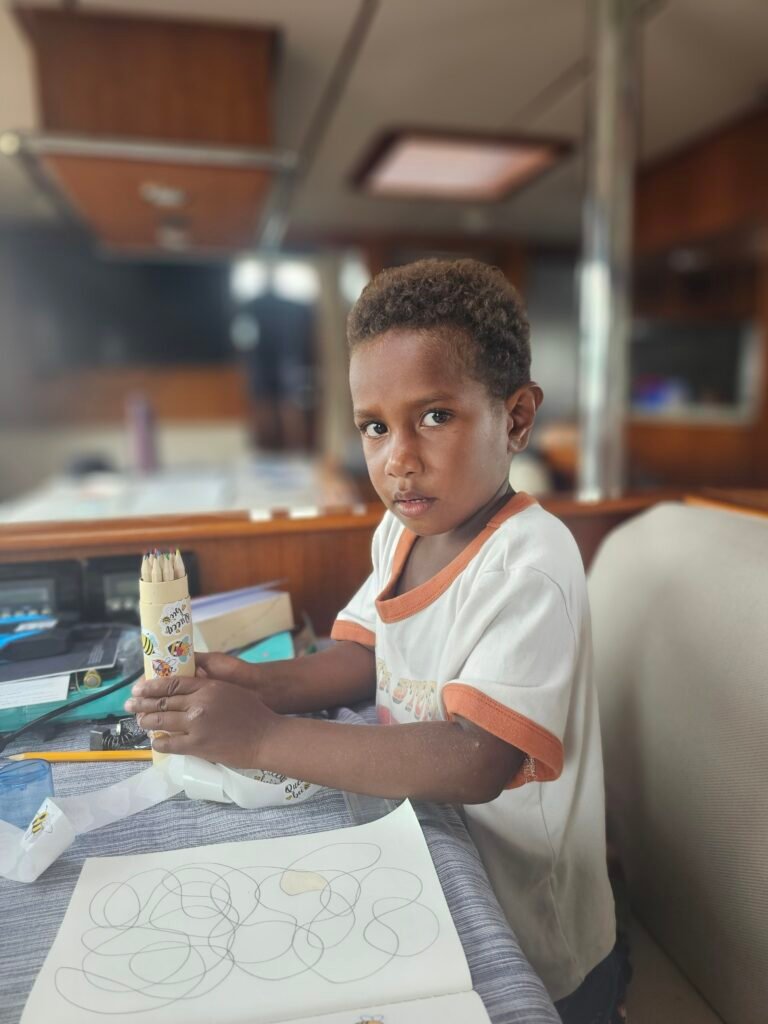
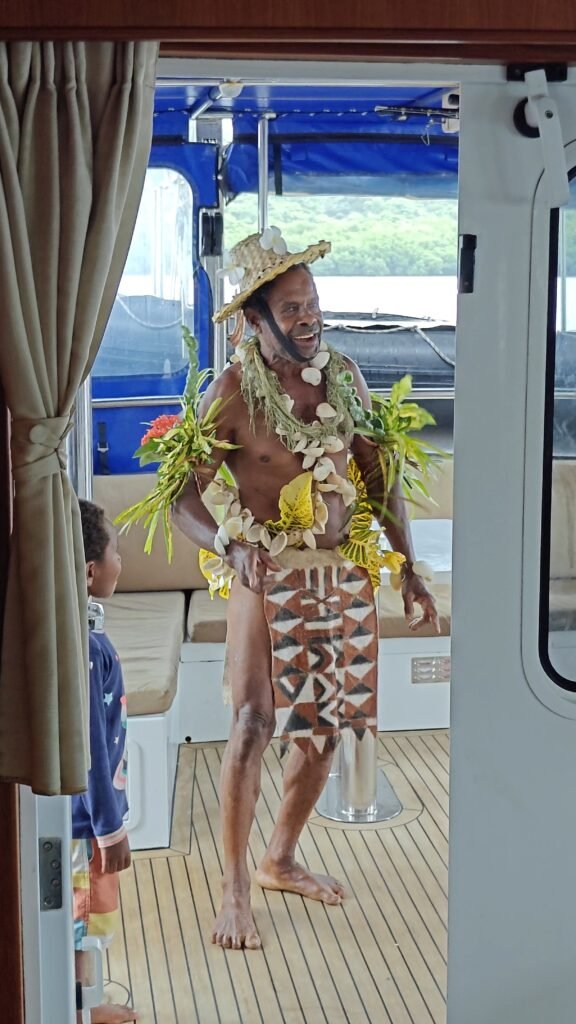
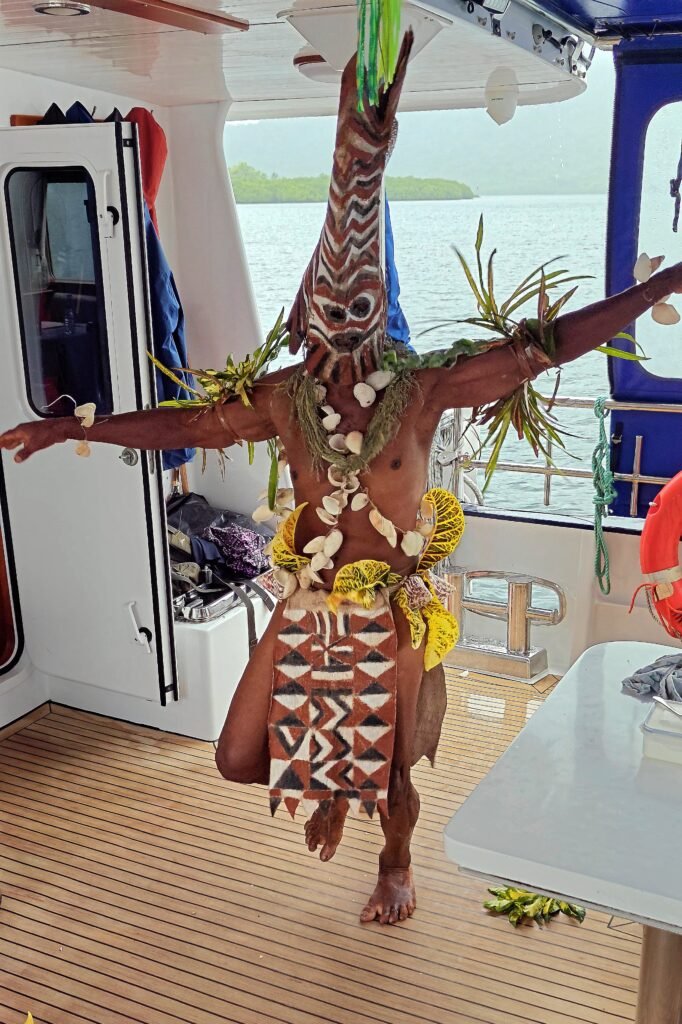
The next day, we ventured ashore to explore the village called Tanibili (or Tanivili). The Feast of the Ascension of Jesus Christ celebrations was in full swing when we landed the dinghy. We were immediately swamped by 35 children whispering and giggling. We were invited to sit down and watch the skits the locals had prepared for the celebration. Having Leonard with us was brilliant—he translated and explained everything.
The weather refused to cooperate, so we had to stay put for a few days. Evenings were spent fishing, though my enthusiasm waned after our new friend Leonard caught a baby shark and decided to keep it to give to the village for their dinner. Not exactly my idea of a seafood feast.
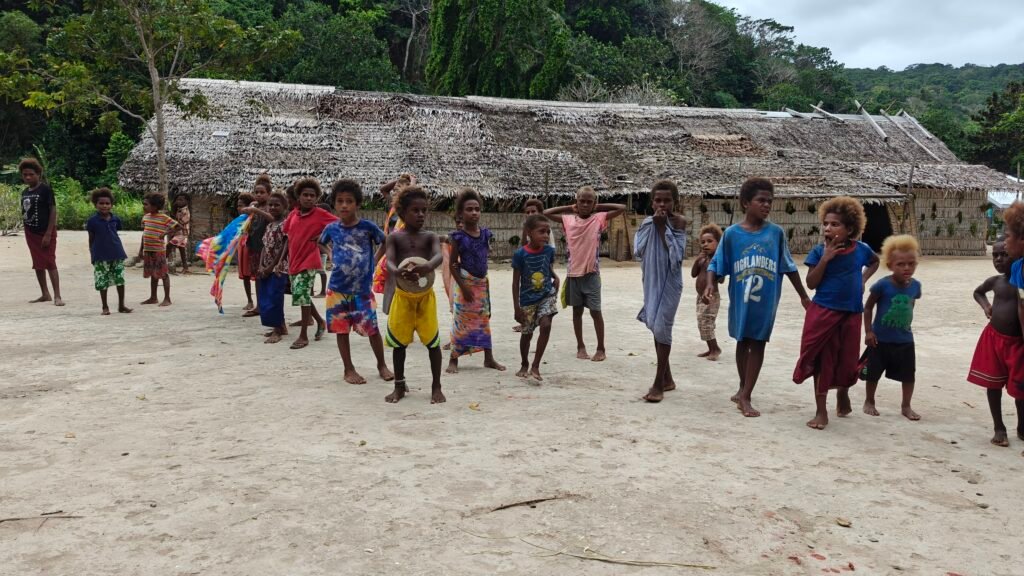
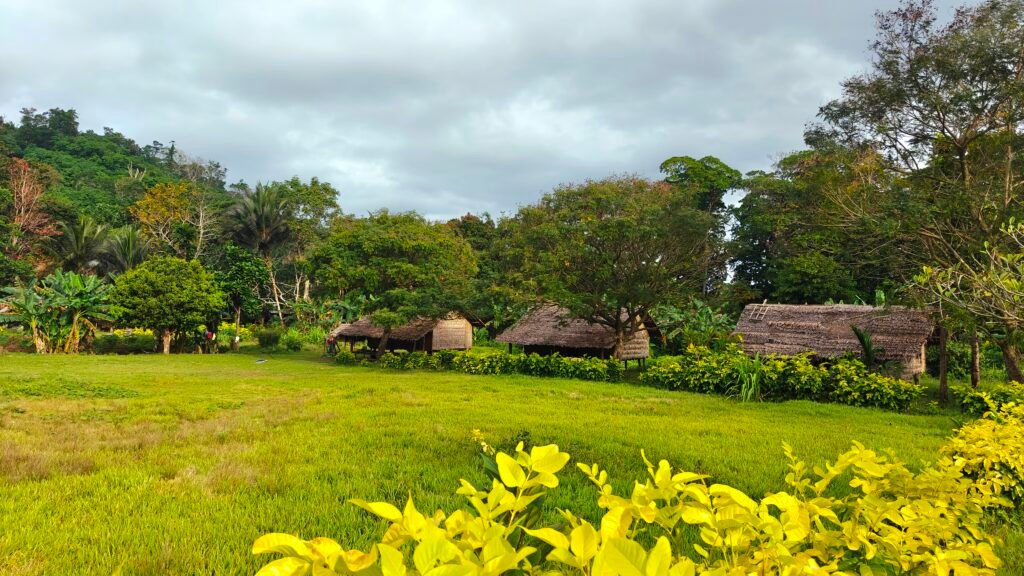
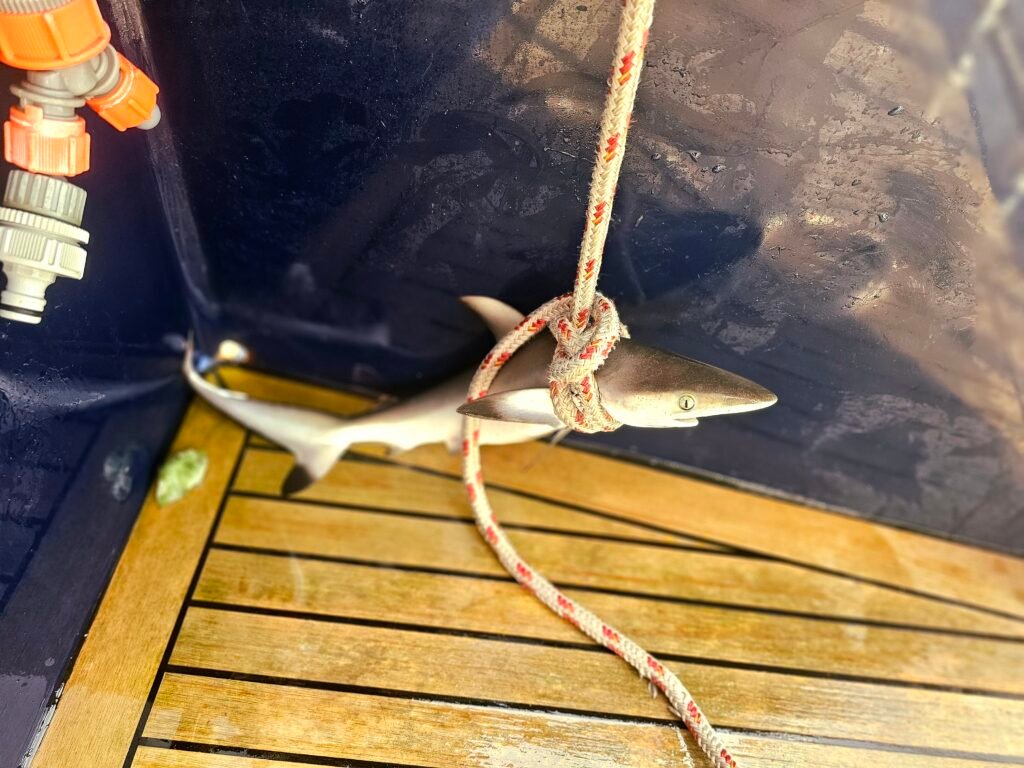
When the weather finally improved, we crossed to Vanikoro to drop off the family. We still had to battle against the winds, and everyone was feeling seasick. My kidney infection seemed stable but wasn’t improving, and to make matters worse, the skipper fell seriously ill. We had no choice but to head straight back to Lata for medical help. The skipper caught the next (and only) flight out—flights here run once a week if you’re lucky. I made another trip to the hospital for a different dose of antibiotics.
Being sick on a boat is a gamble—when do you decide it’s time to leave? It’s a dilemma every yachtie faces. My condition wasn’t worsening, but it wasn’t improving either. We had to face the reality that I needed proper medical care, which meant leaving for Australia. We’d already checked with the hospital in Honiara, but they didn’t have the right medication. Australia was the nearest option.
Getting out of Lata wasn’t straightforward. Flights were frequently cancelled, and the big plane was often swapped for a tiny one. Booking a flight was another saga, as our credit card confirmation codes were sent to our NZ phone numbers, which had no service. Two-factor authentication is all fun and games until it isn’t. Friends in New Zealand came to the rescue, booking our flights for us. We were also lugging extra bags from another crew who’d left weeks earlier, so locals once again stepped in to help carry our stuff in the blistering heat. At the airstrip, we were told there was no room on the flight. After explaining the medical urgency, to my utter embarrassment, the airline staff asked the crowd if anyone would give up their seat. Two kind souls stepped forward without hesitation. Heroes.
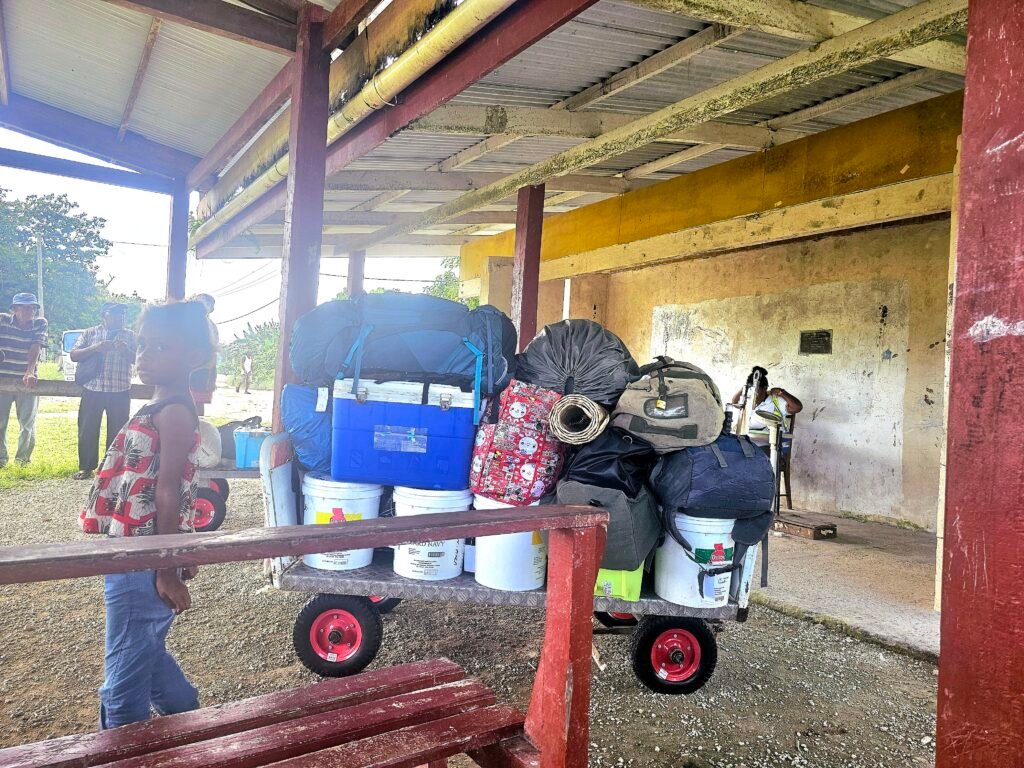
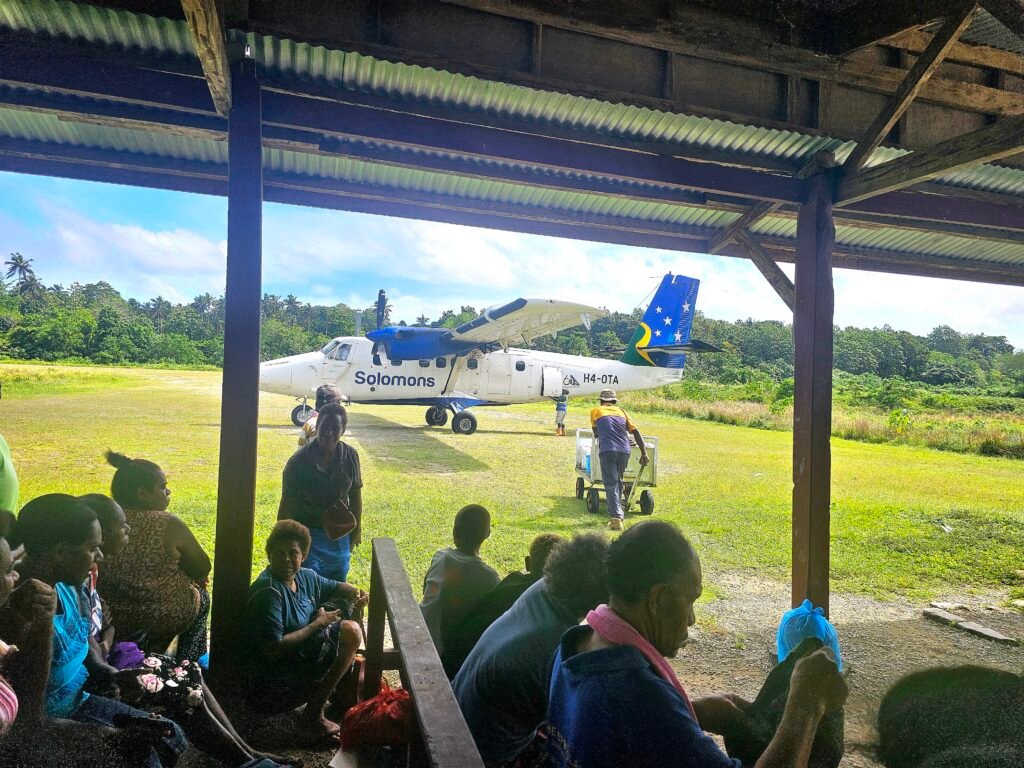
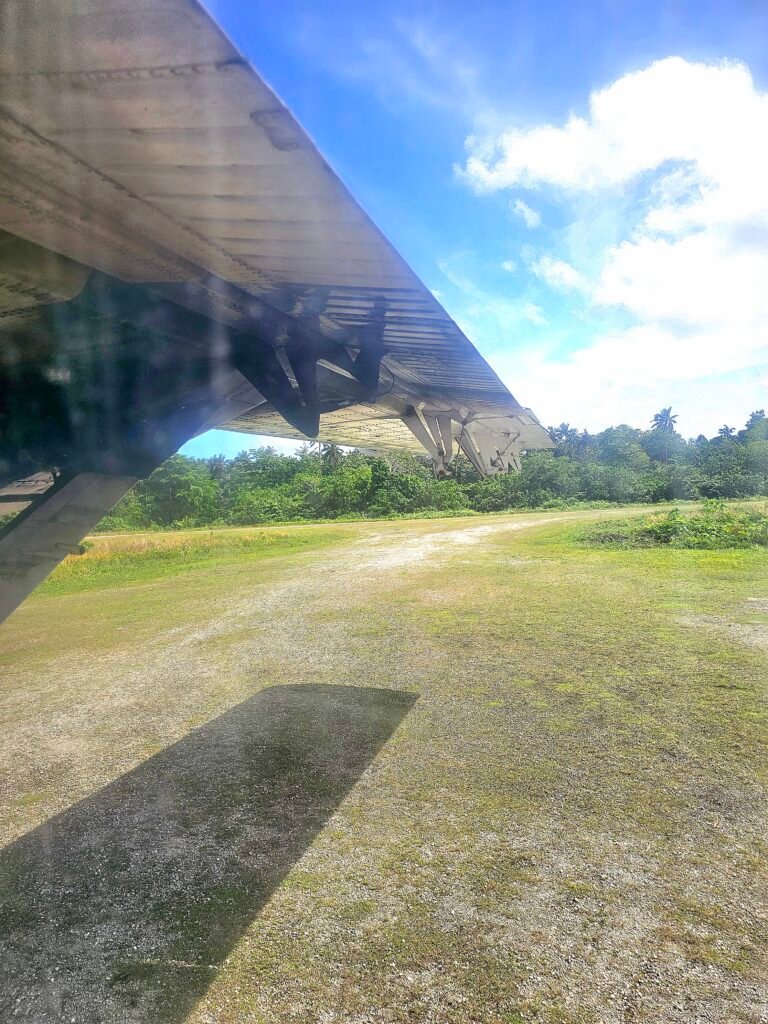
We spent one night in Honiara and managed to explore a bit. Despite warnings to be cautious, we felt safe, and the locals were lovely. Our hotel, surprisingly nice for the cheapest option I could find, even had an old-school cable car. It was dodgy but ridiculously fun.
The next day, we killed time at a café, savouring delicious meals, shakes, cakes, and the view before flying to Melbourne. Upon arrival, it was straight to the hospital for treatment. I was only kept in for a day but stayed in Melbourne for a week before continuing to New Zealand for further treatment—Australia only covered emergencies.
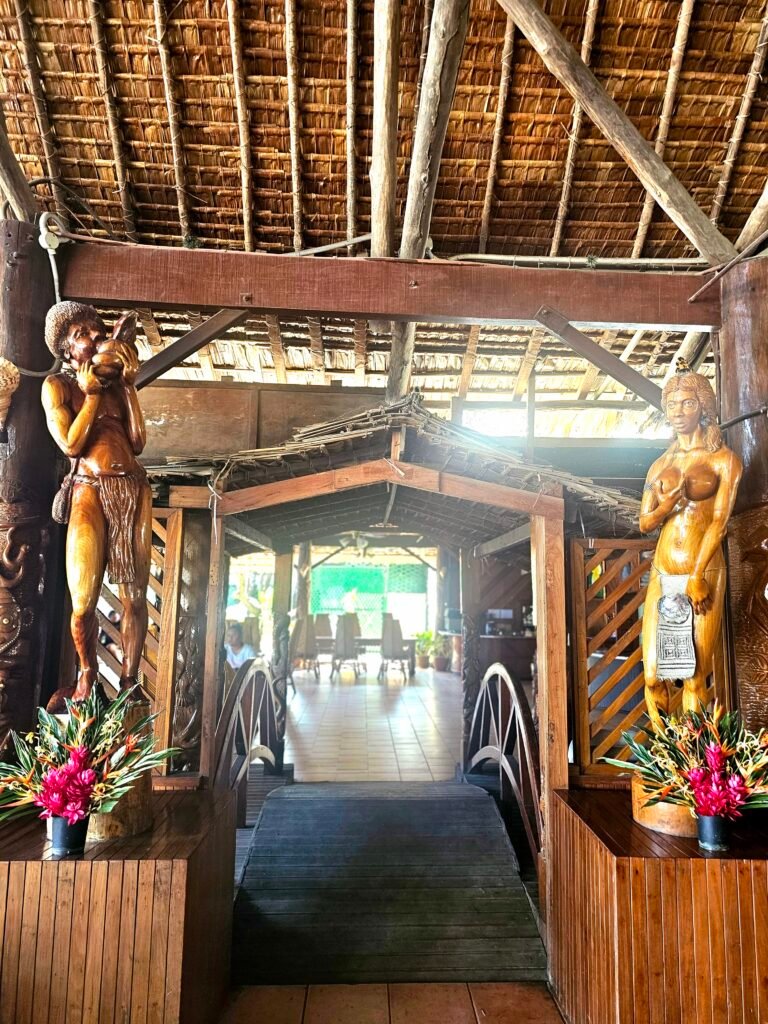
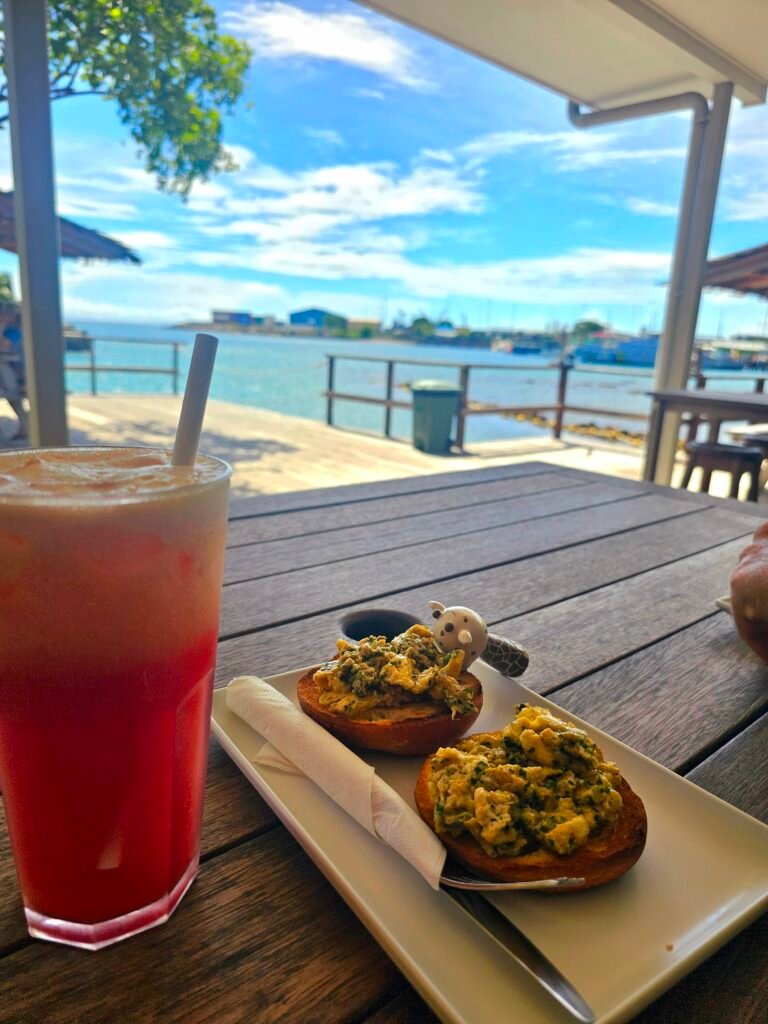
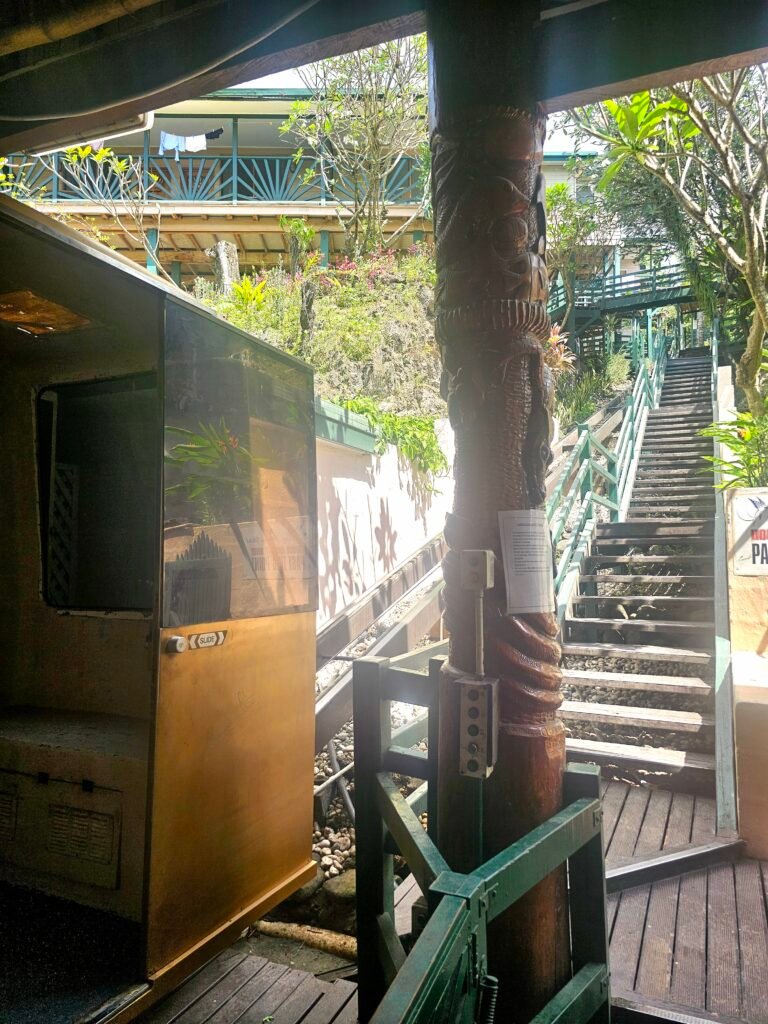
Flying back into Auckland felt like admitting defeat, but I was so grateful for the amazing friends who took care of me. It took two months to recover—not just from the kidney infection but also from a strained QL muscle. I’d probably done that trying to unjam a stern line, convinced I could single-handedly move a 300-tonne boat. Spoiler: I couldn’t.
My time in New Zealand was rejuvenating but bittersweet. I was sad to miss out on more of the Solomon Islands, but I got to celebrate my birthday with friends and even threw an early surprise party for Mark before rejoining the boat for our next adventure.
A huge thank-you to Hilda, who looked after us so well. Though our time in the Solomons was short and filled with challenges, the warmth and kindness of the people we met made it unforgettable.
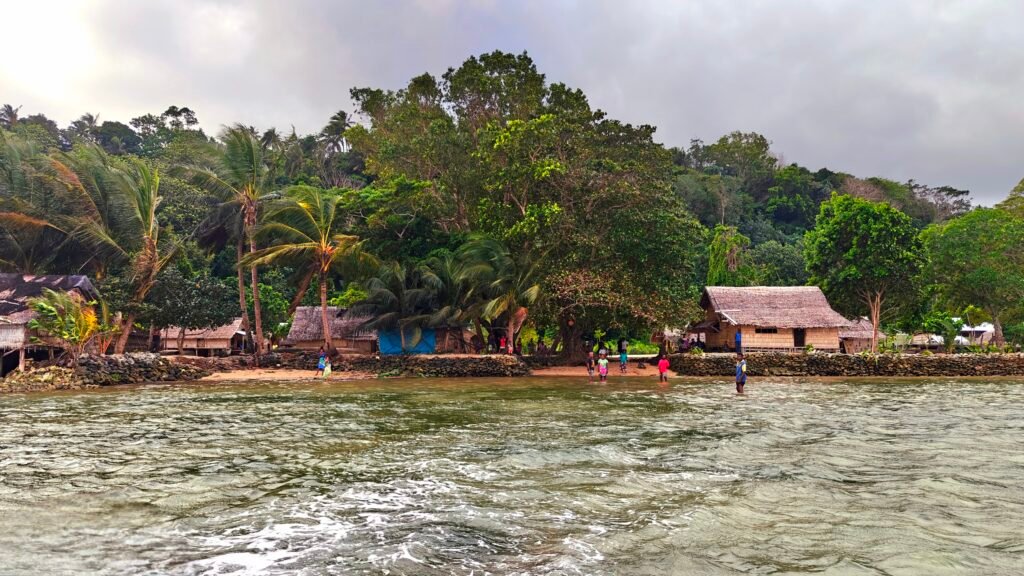

This was really ridiculous to sone point of illnesses emergency.
However, be the best resolver.
Thanks for looking after us Hilda. Your fruit, herbs and vegetable was much appreciated :). Hope you take care!